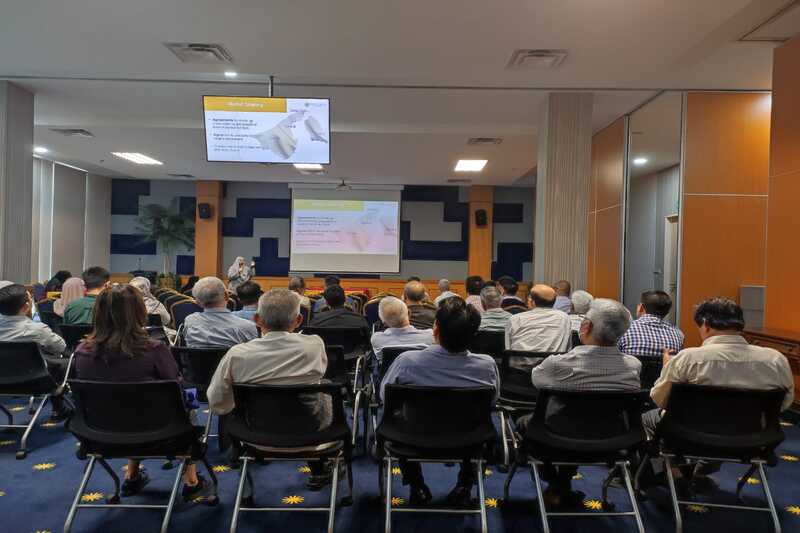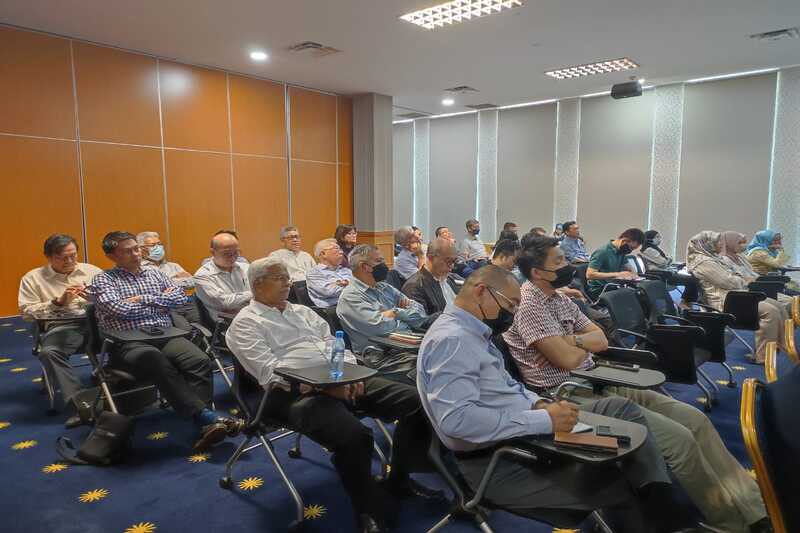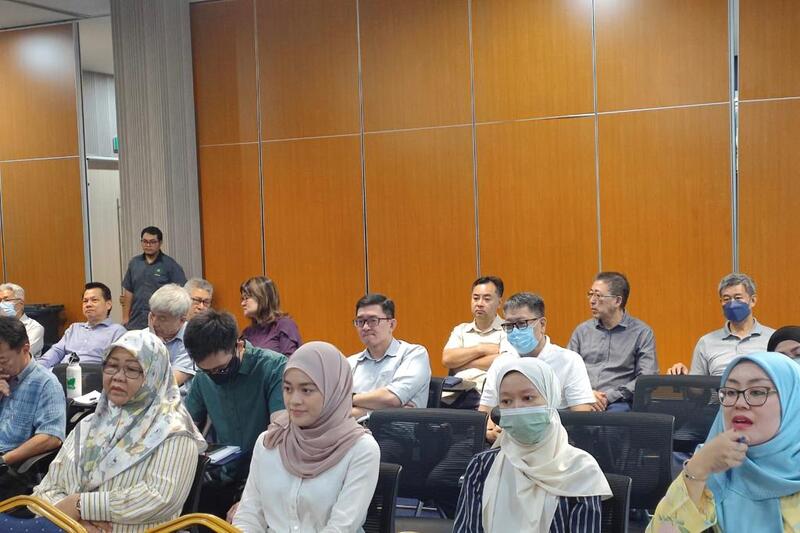Over 40 professional surveyors, engineers and architects, which among others consist of members of the Brunei Institution of Surveyors, Engineers and Architects (PUJA) Brunei, attended an advocacy session entitled Competition Act: Deterring Bid Rigging, last Saturday. The session was delivered by the Competition Commission Brunei Darussalam (CCBD) through its Executive Secretariat and was organised by the PUJA Academy Sdn Bhd to further promote the understanding of the Competition Act, Chapter 253, particularly on one of the key prohibitions under the Act, namely bid rigging. The session was conducted at the Atria Simpur Hall, Public Works Department Headquarters.
The Executive Secretariat of CCBD began the first part of the session by the explanation of the three key prohibitions under the Act, Section 11: Anti-Competitive Agreements, Section 21: Abuse of Dominant Power, and Section 23: Anti-Competitive Mergers. The session focused on Section 11: Anti-Competitive Agreements or also known as cartels, being the current key prohibition that is enforced under the Act beginning 1 January 2020. Anti-competitive agreements, among others, consist of four types of agreements that are considered as hardcore cartels, which are price fixing, market sharing, supply limitation and bid rigging.
The session then continued with a detailed explaination on bid rigging and its harmful effects to not only businesses and consumers, but also country’s economy and government expenditure. Bid rigging refers to collusion between bidders or potential bidders to eliminate competition in the procurement process by agreeing on who should win the tender and at what price, resulting to increase in prices and lower quality of goods or services. Collusion in tenders not only distort the competitive bidding process to obtain best value for money of goods and services procured, it may also deprive genuine bidders from obtaining business opportunities. The arrangement among bidders or potential bidders to have a pre-determined bid winner can also disincentivise companies to do better, which then result to the preservation of inefficient companies and industries, and may later on create a unfavourable image of the industry and the industry players.
Further to this, the attendees were also provided with explanation on the different forms of bid rigging including (i) bid suppression where potential bidders refrain from participating in a tender to ensure the pre-determined winner can win the tender; (ii) complementary bidding where bidders deliberately submit high tender price to establish the notion that the pre-determined winner’s price is competitive; (iii) bid rotation where bidders take turns to win tender; and (iv) subcontracting arrangement which was done in exchange with agreement to manipulate the tender.
The Executive Secretariat of CCBD highlighted on other main provisions of the law as well, including the Leniency Programme under Section 44. The Leniency Programme gives incentives for businesses that partake in a cartel activity to come forward to disclose information about the prohibited conducts and provide full cooperation to the CCBD, in exchange for up to a full immunity from the penalty. More information on the Competition Act and Leniency Programme can be accessed via the CCBD website at www.ccbd.gov.bn
To end the session a question and answer session was held and interactive quizzes were also prepared by the Executive Secretariat of CCBD to further enhance the understanding and awareness of the Act. Also present during the session were the Chairperson of CCBD, Yang Mulia Nik Hafimi binti Abdul Haadii, as well as Head of the Executive Secretariat of CCBD, Yang Mulia Hajah Rena Azlina binti Dato Paduka Haji Abdul Aziz.
The CCBD welcomes any request for dialogue or briefing on the Competition Act, which can be directed to the Executive Secretariat of CCBD through email at exec.secretariat@ccbd.gov.bn. For further information, visit CCBD’s website at www.ccbd.gov.bn or contact 2383100.



